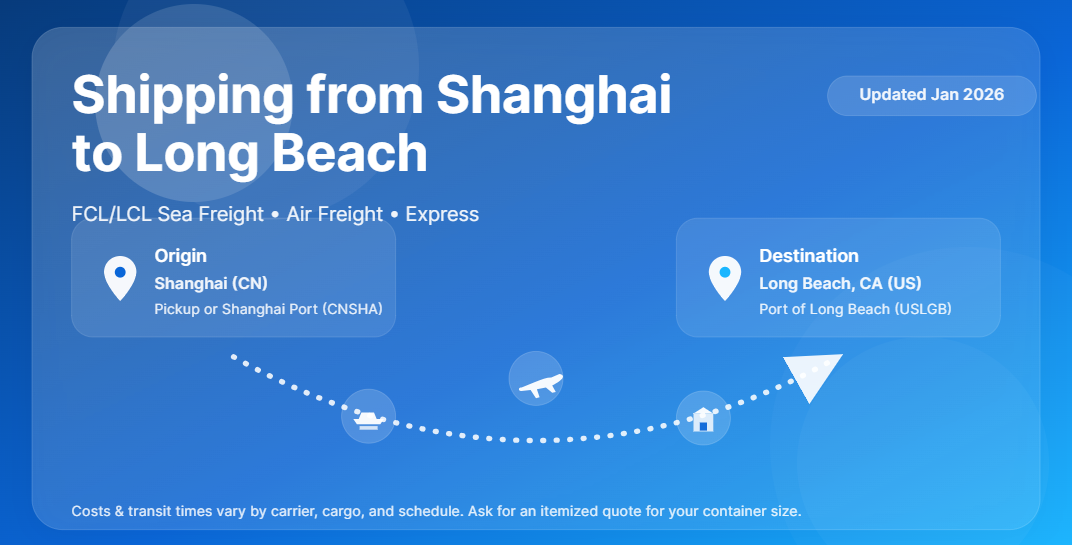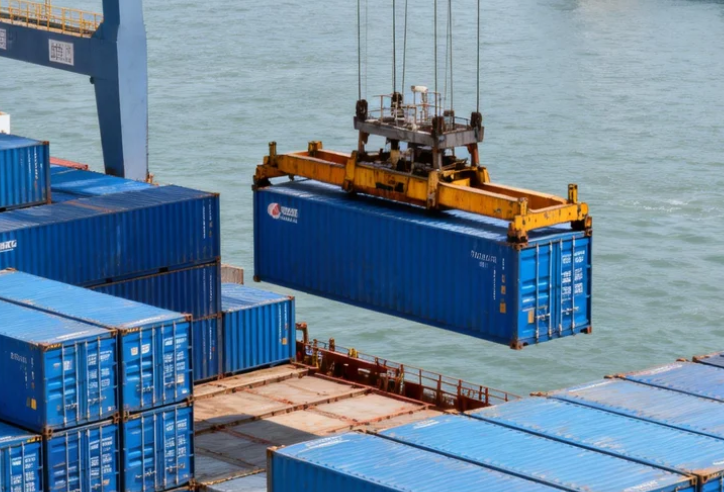Are you looking to streamline your Import Procedure from China to Israel for maximum efficiency, compliance, and cost savings? As global trade between China and Israel rapidly expands, understanding the full import process is essential for every business aiming to avoid costly delays and ensure smooth customs clearance. This comprehensive guide to the Import Procedure from China to Israel will walk you through every critical step—from choosing the right supplier and preparing key documents to navigating Israeli regulations and optimizing shipping methods. Whether you’re a seasoned importer or new to international logistics, mastering these procedures is the key to success in today’s competitive market.

Understanding the Import Process from China to Israel
Importing goods from China to Israel involves a series of structured steps designed to ensure compliance with both Chinese export controls and Israeli import regulations. The process typically begins with supplier selection and negotiation, where importers confirm product specifications, pricing, Incoterms, and timelines. It is crucial to perform due diligence on the supplier and agree on quality standards and inspection protocols to avoid misunderstandings or disputes.
Once the purchase contract is signed, the exporter in China arranges for the production and preparation of goods. Importers must then gather essential shipping and customs documents, such as the commercial invoice, packing list, bill of lading (or air waybill), certificate of origin, and—if required—import licenses or special certificates. Accurate documentation not only expedites customs clearance in Israel but also ensures compliance with VAT and any applicable tariffs.
After the goods are ready, logistics arrangements are made through a freight forwarder, who books space with the ocean or air carrier and coordinates transport from the supplier’s facility to the departure port in China. Upon arrival in Israel, goods are subject to customs clearance by Israeli Customs, where all documents are reviewed, duties and taxes calculated, and, if necessary, physical inspections conducted.
Timely payment of duties and VAT is required before goods are released for final delivery to the importer’s designated location. Working with an experienced logistics provider like Dantful International Logistics helps importers navigate these steps seamlessly, offering document preparation support, status updates, and efficient handling of any customs issues that may arise.
Choosing the Right Shipping Methods from China to Israel
Selecting the most suitable shipping method from China to Israel can significantly impact shipping costs, delivery times, and overall reliability. The primary options are ocean freight, air freight, and express courier services, each tailored to different shipment sizes, values, and urgency levels.
Ocean freight is the most popular choice for bulk and non-urgent shipments, offering both Full Container Load (FCL) and Less than Container Load (LCL) options. FCL is ideal if you have enough cargo to fill a container, providing better value per cubic meter and added security. LCL is preferable for smaller consignments, as you only pay for the space you use, though it may involve slightly longer transit times due to consolidation and deconsolidation.
For more urgent or high-value shipments, air freight is a faster but more expensive alternative. With direct flights from major Chinese cities to Tel Aviv, air freight is especially suited for electronics, apparel, or time-sensitive goods. Express courier services, such as DHL, FedEx, or UPS, are best for samples, small parcels, or documents, offering door-to-door delivery and streamlined customs clearance.
Here’s a comparison of the main shipping methods:
| Shipping Method | Typical Use Case | Average Transit Time | Cost Efficiency | Best For |
|---|---|---|---|---|
| Ocean FCL | Large, bulk shipments (>15 CBM) | 20–28 days | Most cost-effective | Bulk and full loads |
| Ocean LCL | Small to medium shipments (<15 CBM) | 22–32 days | Moderate | Small businesses, partial loads |
| Air Freight | Urgent, high-value cargo | 3–7 days | Higher cost | Electronics, perishables |
| Express Courier | Samples, small parcels, documents | 2–5 days | Highest cost | Samples, urgent small items |
While ocean freight is generally more economical for large or heavy cargo, air and express options offer significant time savings for urgent deliveries. Dantful International Logistics provides expert advice, competitive rates, and comprehensive service for all shipping methods, helping importers make the best logistics choice based on their unique needs.For customized recommendations and up-to-date shipping quotes, it is always best to consult with a reliable freight forwarder that understands both the Chinese and Israeli logistics landscapes.
Shipping From China to Middle East Countries:
- Shipping from China to Saudi Arabia
- Shipping from China to UAE
- Shipping from china to KUWAIT
- Shipping From China To EGYPT
- Shipping from China to Bahrain
- Shipping From China To Jordan
- Shipping From China To Israel
- Shipping from China to Qatar
- Shipping From China To IRAQ
- Shipping from China to Iran
Essential Documentation for the Import Procedure from China to Israel
Proper documentation is the foundation of a smooth import process when shipping goods from China to Israel. Incomplete or incorrect paperwork can cause customs delays, unexpected costs, or even shipment rejections. The main documents required for customs clearance and compliance are standard across most shipments, but certain goods or circumstances may require additional paperwork.
The typical set of documents includes:
- Commercial Invoice: Details the transaction between buyer and seller, including product description, quantity, unit price, total amount, and Incoterms.
- Packing List: Specifies packaging details such as weight, dimensions, and contents of each package, facilitating inspection and handling.
- Bill of Lading (B/L) or Air Waybill (AWB): Acts as a contract between shipper and carrier, and is required for releasing goods at destination.
- Certificate of Origin: Confirms the country where the goods were manufactured, which may impact duty rates or trade agreement eligibility.
- Import License: Needed for restricted or regulated products, as specified by Israeli authorities.
- Other certificates: May be required for certain commodities (e.g., phytosanitary certificates for agricultural goods, or quality/safety certificates for electronics).
Here’s a quick comparison for standard and restricted cargo documentation:
| Document Type | Standard Goods | Restricted Goods (e.g. food, chemicals, electronics) |
|---|---|---|
| Commercial Invoice | ✔️ | ✔️ |
| Packing List | ✔️ | ✔️ |
| Bill of Lading / AWB | ✔️ | ✔️ |
| Certificate of Origin | ✔️ | ✔️ |
| Import License | – | ✔️ |
| Special Certificates | – | ✔️ (safety, health, phytosanitary) |
Working with a professional freight forwarder like Dantful International Logistics can simplify document preparation. Dantful’s experienced team assists importers by reviewing documents for accuracy, advising on compliance requirements, and coordinating with both Chinese exporters and Israeli customs authorities. This expert support minimizes the risk of errors and helps ensure your goods are cleared promptly.
Customs Duties and Taxes in the Import Procedure from China to Israel
Understanding and correctly budgeting for customs duties and taxes is crucial to accurately calculate the total landed cost of your goods when importing from China to Israel. Duties and taxes are determined by several variables including product classification, value, and trade agreements.
Israel’s customs duties are primarily based on the HS (Harmonized System) code of the imported product. The Customs Authority determines the applicable duty rate, which can vary from 0% (for many IT products and under trade agreements) to 12% or more for certain goods. In addition to import duty, Value Added Tax (VAT) is applied at a standard rate—currently 17%—on the CIF (Cost, Insurance, and Freight) value plus the duty.
Some products are subject to additional purchase taxes or excise duties, particularly for alcohol, tobacco, motor vehicles, or luxury items. Israel and China do not have a Free Trade Agreement, so most goods are subject to the standard duty rates unless covered under special provisions.
Below is a comparison of typical customs costs for general and restricted goods:
| Cost Item | General Cargo | Restricted/Special Goods |
|---|---|---|
| Import Duty | 0%–12% (by HS code) | Up to 20% for highly protected goods |
| VAT | 17% | 17% |
| Purchase/Excise | None | Applies to specific categories (alcohol, etc) |
| Customs Broker | $100–$250/service | $150–$300/service (may require more steps) |
It’s important to classify your goods accurately using the correct HS code to determine the precise duty and tax rates. Misclassification can lead to fines or shipment delays. Dantful International Logistics leverages deep expertise in product classification and local Israeli requirements to make sure your cargo is correctly declared and all costs are transparent upfront.
Consulting with a trusted logistics partner ensures you are fully informed of all fee components and helps you avoid costly surprises in your import process. For the latest duty rates and a tailored landed cost estimate, reach out to Dantful International Logistics.
Regulatory Compliance and Import Laws
To successfully import goods from China to Israel, importers must comply with a comprehensive set of Israeli import regulations and laws. Compliance is essential to avoid customs delays, financial penalties, or confiscation of goods. Key points include:
- Accurate Product Classification: All goods must be correctly classified under the Harmonized System (HS codes). The HS code determines the applicable duty, Value Added Tax (VAT), and any import restrictions or licensing requirements. Inaccurate classification may lead to costly penalties.
- Import Licenses and Special Permits: Certain products—such as food, pharmaceuticals, chemicals, electronics, and medical equipment—require special import permits or certifications from relevant Israeli ministries. Check if your goods fall under restricted categories before shipping.
- Product Standards and Quality Compliance: Israel enforces safety, health, and environmental standards for many imported goods. Electrical products often require compliance with Israeli standards (SII certification), while food and cosmetics may require health ministry approval.
- Labeling Requirements: Imported products often must have Hebrew labeling, including product name, ingredients, importer details, and safety warnings. Failure to comply with labeling rules may result in goods being held at customs or denied entry.
- Prohibited and Restricted Goods: Some items are strictly prohibited (e.g., certain weapons, hazardous chemicals, counterfeit items), while others are restricted and require special approval.
- Documentation: Required documents include the commercial invoice, packing list, bill of lading or air waybill, certificate of origin, and any applicable licenses or certificates.
Staying up to date with the latest regulations from the Israel Tax Authority and relevant ministries is crucial, as rules may change. Working with an experienced freight forwarder like Dantful International Logistics can help ensure your shipment meets all legal and regulatory requirements, reducing the risk of compliance issues.
Common Issues and How to Avoid Them
Importers shipping from China to Israel may face several recurring challenges. Understanding these issues and how to proactively address them can save time and money:
- Incomplete or Incorrect Documentation: Missing or inaccurate paperwork—such as an incomplete invoice, incorrect packing list, or missing licenses—can result in customs delays or fines. Double-check all documents for consistency and completeness before shipping.
- Misclassification of Goods: Using the wrong HS code can cause overpayment or underpayment of duties and may trigger customs investigations or penalties. Consult with customs brokers or logistics experts to ensure the correct classification.
- Unmet Product Standards: Failure to meet Israeli safety or quality standards, or to obtain the necessary certification (such as SII for electronics), often leads to shipment rejection or costly delays. Always verify product requirements before export.
- Labeling Violations: Goods lacking required Hebrew labeling or safety warnings may be denied entry or delayed at customs. Review labeling obligations for your product type in advance.
- Missing Import Licenses or Permits: Shipping regulated items without the right permits or approvals can result in confiscation or destruction of goods. Confirm licensing requirements for your product class with the relevant ministry.
- Underestimating Costs: Unexpected customs duties, taxes, demurrage, or storage fees can significantly increase landed costs. Request a detailed, all-inclusive quote from your freight forwarder and clarify the number of free days for containers or storage.
- Cargo Damage or Loss: Inadequate packaging or lack of insurance can lead to financial loss if goods are damaged or lost in transit. Use export-grade packaging and consider comprehensive cargo insurance.
To avoid these issues, work with a reputable freight forwarder like Dantful International Logistics. Their expertise in compliance, documentation, and supply chain coordination helps ensure your import process is efficient, transparent, and free from costly surprises. Proactive planning, attention to detail, and professional support are key to a smooth importing experience from China to Israel.
Best Practices and Case Study
Adopting best practices in your import operations from China to Israel can significantly reduce risk, improve efficiency, and ensure full compliance with regulations. Here are key strategies successful importers follow:
- Plan Ahead and Confirm Bookings Early: Avoid peak season delays and rate surges by organizing shipments well in advance, especially around major Chinese and Israeli holidays.
- Choose Reliable Partners: Work with reputable suppliers and an experienced freight forwarder like Dantful International Logistics to ensure clear communication, proper documentation, and up-to-date knowledge on both Chinese export and Israeli import requirements.
- Prepare Complete and Accurate Documentation: Double-check all required documents such as commercial invoices, packing lists, bills of lading, and certificates of origin. Use the correct HS codes, and secure import licenses or special permits for restricted goods.
- Understand and Meet Regulatory Requirements: Stay informed on Israeli standards for product safety, labeling (especially Hebrew labeling), and quality certification. Ensure all goods meet these prerequisites before shipment.
- Optimize Packaging and Insure Your Cargo: Use sturdy, export-grade packaging to protect shipments during transit, and purchase comprehensive cargo insurance to safeguard against loss or damage.
- Monitor Shipments: Leverage technology for real-time shipment tracking and proactive updates, allowing quick response to any delays or issues in the supply chain.
Case Study Example:
A mid-sized Israeli importer needed to bring in a shipment of LED lighting products from Shanghai to Ashdod. The cargo required SII certification, Hebrew labeling, and timely arrival before a seasonal sales event.
By partnering with Dantful International Logistics, the importer:
- Provided detailed product information and compliance documents to Dantful’s team.
- Received expert guidance on obtaining SII certification and ensuring all labeling met Israeli regulations.
- Benefited from Dantful’s early booking service, securing space on a reliable vessel with a direct route.
- Utilized real-time tracking to monitor the container’s progress.
- Experienced a smooth customs clearance process, as all paperwork was pre-checked and all necessary permits were in place ahead of time.
- Avoided demurrage and extra costs by arranging prompt delivery upon arrival.
The shipment arrived ahead of schedule, met all compliance checks, and allowed the importer to launch their products on time for the peak sales period. By applying best practices and leveraging professional logistics support, the importer minimized risk, avoided additional fees, and maximized their opportunity in the Israeli market.
For importers aiming for similar success, the adoption of these strategies and choosing an experienced partner like Dantful International Logistics is essential for smooth, cost-effective, and compliant international shipping operations.
FAQs
Q:What documents are required for the import procedure from China to Israel? A:You typically need a commercial invoice, packing list, bill of lading or air waybill, certificate of origin, and any necessary import licenses or certificates.
Q: How long does it take to ship goods from China to Israel? A:Ocean freight usually takes 20–32 days, while air freight can take 3–7 days depending on the service and route.
Q: Are there import duties and taxes on Chinese goods in Israel? A:Yes, most imports are subject to Israeli customs duties and 17% VAT, depending on the product’s HS code.
Q: Do I need an import license for all products? A:No, only certain restricted or regulated goods require an import license or special permits.
Q: Can my freight forwarder help with customs clearance in Israel? A:Yes, a professional freight forwarder like Dantful International Logistics can assist with document preparation and coordinate the entire customs clearance process.

Young Chiu is a seasoned logistics expert with over 15 years of experience in international freight forwarding and supply chain management. As CEO of Dantful International Logistics, Young is dedicated to providing valuable insights and practical advice to businesses navigating the complexities of global shipping.





















